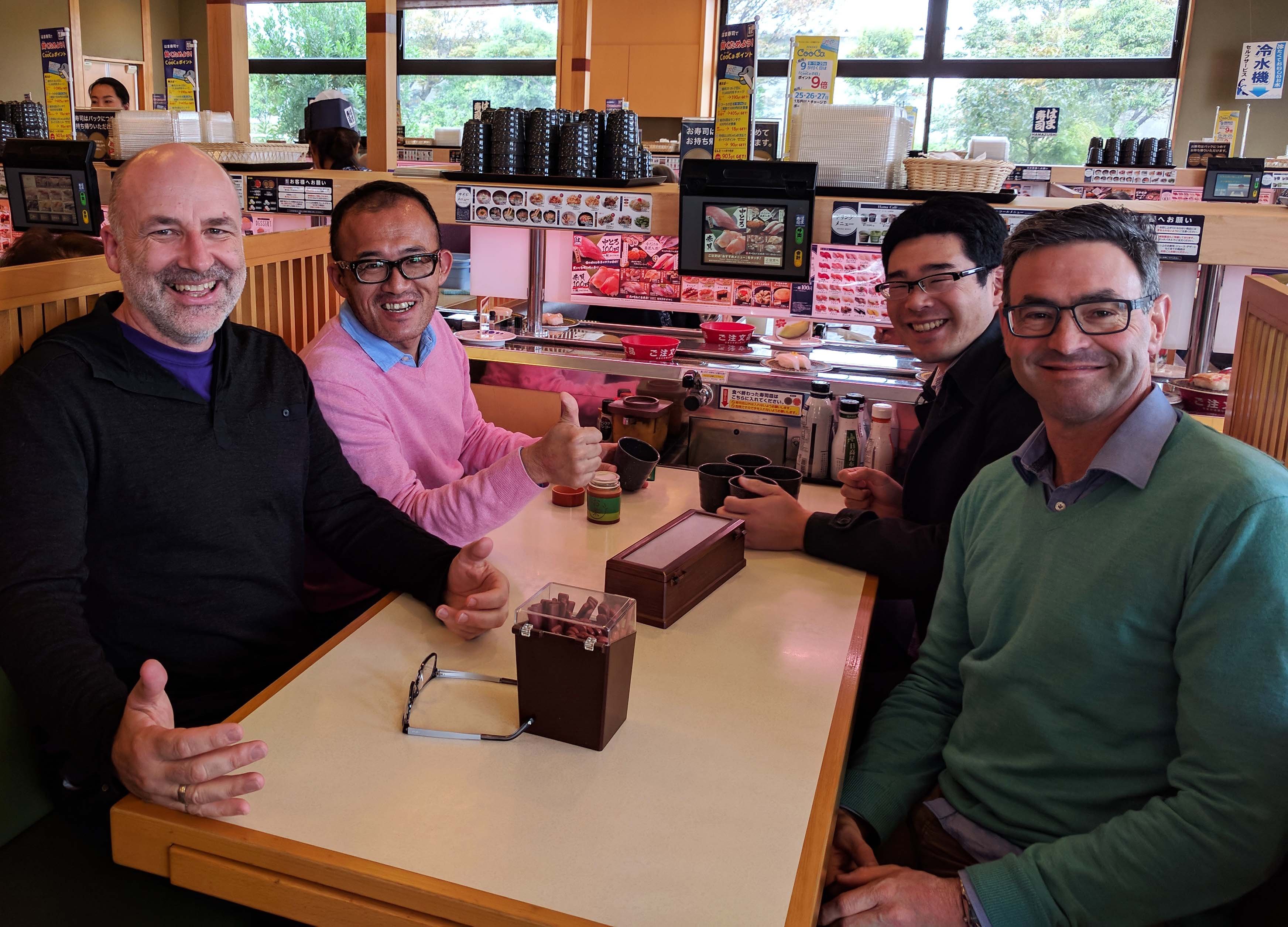Dragonfly is sharing its analysis methods and data with scientists in Japan to build a more complete picture of seabird bycatch in Southern Hemisphere fisheries.
The relationship began when Edward met Kazuhiro Oshima and Sachiko Tsuji at a BirdLife workshop in Vietnam earlier this year. Oshima-san and his team have since visited New Zealand twice and Edward and Nathan Walker, principal scientist at the Ministry for Primary Industries, also spent a week in Japan in October.
“The project is looking at albatross bycatch in surface longline fisheries. It’s taking the methods we use here in New Zealand and working with Japan to help them apply those methods to their data. Then we can take all our data into a Southern Hemisphere assessment of the bycatch,” says Edward.
New Zealand is working in a bilateral way with individual countries like Japan in between the large international fisheries meetings. They have open sourced their seabird risk assessment frameworks and spent time discussing the detail of how both parties will work together.
“We’re trying to be collaborative. Naturally people’s data is precious, so we are working together on the method. Each country can run the method on its own data, and then share the results. The Japanese have an awesome team who totally have the technical skill to pick it up and run with it.”

Oshima-san is head of the ecologically related species group at the National Research Institute of Far Seas Fisheries in Shizuoka, Japan. His group researches the bycatch of seabirds and turtles in tuna longline fisheries.
“We have just started this research collaboration”, he says. “Through this work we want to learn about the procedures applied in the New Zealand seabird risk assessments. At the moment the uncertainties in the New Zealand analysis are high. But Japanese longliners have very wide fishing grounds in the Southern Hemisphere, so if we can share our data through this collaboration, it will be more accurate for everyone.”
The Japanese team also attended a tori line workshop hosted by DOC while they were most recently in New Zealand.
“Learning about seabird bycatch is a big issue for us. We must sustain the fishery and care about measures for reducing seabird bycatch. We must consider better ways in the future so we need to know about the impact of the mitigation measures. Then we can take them back to our own fisheries.”
Dragonfly’s contribution to the research collaboration is supported by the Ministry for Primary Industries.


